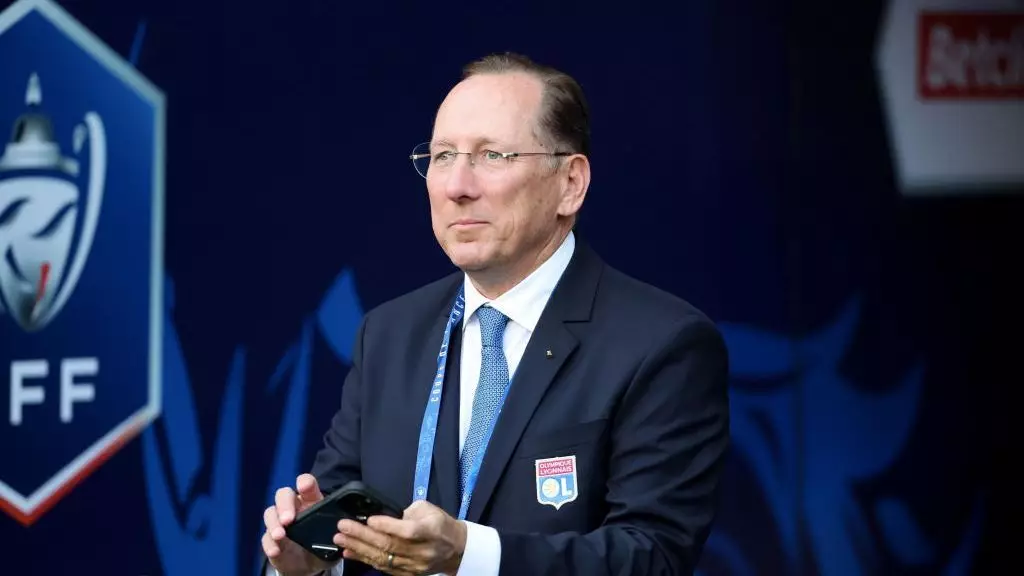The world of football often finds itself embroiled in controversy, and the recent comments from John Textor, the American owner of Olympique Lyonnais, have only intensified the tension surrounding the relationships within French football leadership. Textor’s vocal criticism of Nasser Al Khelaifi, the president of Paris Saint-Germain (PSG), and Vincent Labrune, the head of Ligue 1, sheds light on perceived conflicts of interest that continue to plague the league. His remarks raise important questions about governance and integrity in European football.
One of Textor’s major criticisms revolves around what he views as an unacceptable level of influence that Al Khelaifi wields over French football. As the leader of PSG and the BeIn Sport media group, Al Khelaifi holds a pivotal role that should, in theory, keep him from positioning himself as a driving force in crucial league discussions. Textor’s comments about Labrune’s ineffectiveness during these meetings highlight concerns about the independence of league leadership. Indeed, Textor claimed that Labrune acted more as a “lapdog” than a decisive leader, suggesting that under Al Khelaifi’s direction, the true interests of Ligue 1 were being ignored.
Textor’s insights reveal deeper frustrations among owners who desire a fairer setting for competition. The football establishment thrives on balance—the ability of each club to stand on equal footing in discussions that impact the sporting landscape. The stark imbalance that Textor claims exists undermines the league’s credibility. With so much at stake financially from television deals and broadcasting rights, it’s alarming that a single individual could exert so much influence to the detriment of other clubs.
PSG has not taken Textor’s criticism lightly. In response, the club’s statement highlights a sense of indignation, questioning Textor’s character and suggesting that he lacks the sophistication associated with football leadership. This rebuttal not only defends Al Khelaifi but also attempts to shift the narrative back to a common denominator of professionalism and respect—qualities that Textor’s comments supposedly undermine.
However, this exchange serves to further the schism within French football. By framing Textor’s comments as an attack on PSG as an institution, it becomes clear that the stakes are higher than simply criticism; they represent a burgeoning feud. The earlier cordial discussions between Textor and PSG now seem insufficient against the backdrop of this escalating battle for control and influence within Ligue 1.
Furthermore, the feud is significant not only for Lyon and PSG but also for the entire structure of Ligue 1. If governance remains contentious, how can clubs operate effectively? How can they compete both on and off the pitch if decision-making is hindered by such rivalries? The implications could set lasting precedents in how club owners interact with league officials, possibly prompting re-evaluations of their roles and responsibilities.
The recent conflicts illustrate a larger symptom of a league struggling with its identity in the European football ecosystem. As international investment increases, questions about governance and fairness are paramount. Textor’s ownership of not just Lyon but also other clubs such as Crystal Palace, Botafogo, and Molenbeek implies that he may be looking to promote a different model of ownership—one that prioritizes integrity, transparency, and equitable competition.
With PSG’s historical dominance in Ligue 1, Textor’s critiques could galvanize other club owners and provoke a demand for reform in operations and governance. If, as Textor alleges, Al Khelaifi is steering the sport towards a model that favors PSG disproportionately, then the possibility of competitive imbalance looms large. As discussions around TV rights and funding arise, it will be essential for all stakeholders to reassess their relationships and commitments to a fairer playing field.
In the heated atmosphere of French football, Textor’s pointed critiques reflect broader concerns about fair play and governance. The ongoing confrontation between him and Al Khelaifi may not only reshape their respective clubs but could also signal a new era of scrutiny in Ligue 1. The need for a transparent and accountable structure has never been more urgent, as the future of competition may very well depend on it. As stakeholders mull over Textor’s claims, the challenge will be to create a league where all clubs can thrive amidst the power plays at the top.

